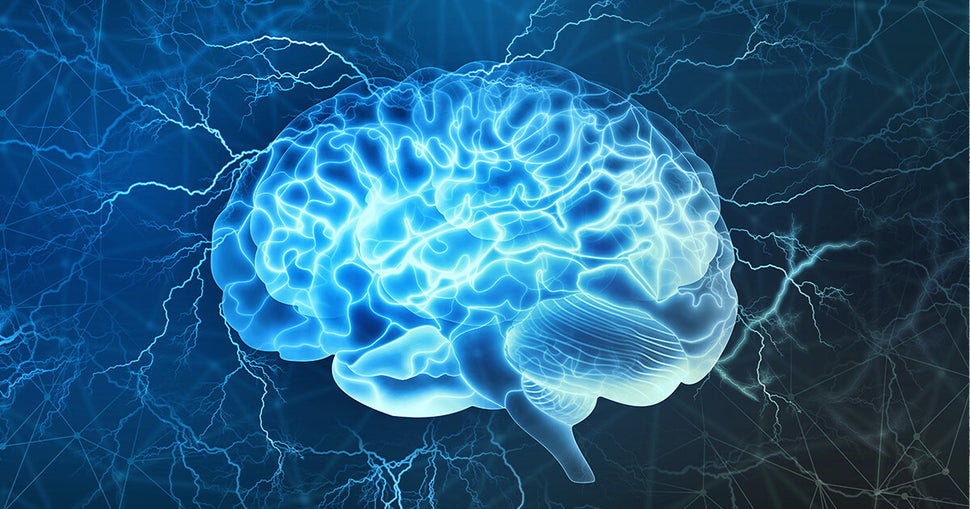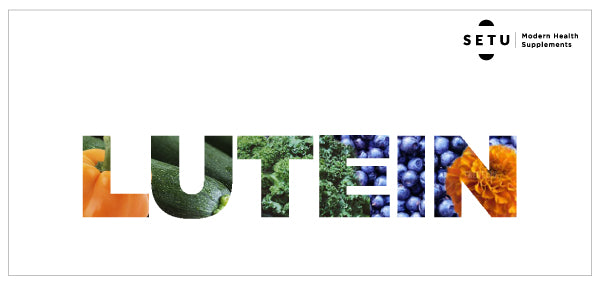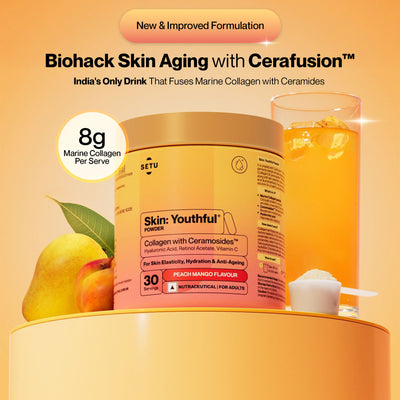Study shows, Lutein has a positive impact on Brain Health
30 Jun 2019
Carotenoids are probably the most common and widespread naturally present pigments that are produced by plants. They are responsible for the brilliant, alluring colours of fruits and vegetables. Carotenoids cannot be produced by our cells and hence have to be procured through diet. Foods rich in lutein include greens vegetables like kale, lettuce, broccoli, zucchini, corn, carrots, celery and fruits such as oranges, melons and grapefruit.

CAROTENOIDS ARE PROBABLY THE MOST COMMON AND WIDESPREAD NATURALLY PRESENT PIGMENTS THAT ARE PRODUCED BY PLANTS. THEY ARE RESPONSIBLE FOR THE BRILLIANT, ALLURING COLOURS OF FRUITS AND VEGETABLES. CAROTENOIDS CANNOT BE PRODUCED BY OUR CELLS AND HENCE HAVE TO BE PROCURED THROUGH DIET. FOODS RICH IN LUTEIN INCLUDE GREENS VEGETABLES LIKE KALE, LETTUCE, BROCCOLI, ZUCCHINI, CORN, CARROTS, CELERY AND FRUITS SUCH AS ORANGES, MELONS, AND GRAPEFRUIT.
Of these several carotenoids, lutein and zeaxanthin are of particular interest. Commonly referred to as ‘eye vitamins,’ zeaxanthin and lutein brain health vitamins are powerful antioxidants that protect the eye from the damaging light like the UV rays from sunlight, improve vision/ sight and decrease chances of cataract and other eye-related problems like macular degeneration, often observed with advancing age. The eye vitamins are naturally accumulated in the macula region of the eye, from where they carry out their functions.
Lutein for brain is in the spotlight recently because, apart from protecting the eyes from the UV rays and the blue light radiated from a laptop, computer, and mobile screens, it has been linked with playing a vital role in improving and maintaining brain health. Our eyes, essentially are densely populated with nerves and so, this connection between lutein benefitd and brain health doesn’t come as a surprise.

Improving and maintaining brain health in today’s hectic times has become the need of the hour. Lutein benefits are not restricted to the infants and it has been shown, interestingly, to benefit individuals at any age.
Various studies carried out in primate animal models, and humans, both adults, and infants have revealed that lutein brain health plays a vital role in brain development of the brain and supporting its functions . Lutein begins its action from the time we are fetuses. Comparison of lutein concentrations in the brain tissue of preterm and full-term babies revealed that lutein was higher in full-term babies as compared to preterm ones. Lutein benefits thus protects the developing brain from this oxidative stress (due to free radical production) during the gestation period.
Lutein in infants has two roles to play – one, it participates in the development of the brain and enhances cognitive function and two protect the brain during the growth of the baby from the stress of constant physiological changes that take place during development.
Lutein in adults is important for cognitive function. Experts believe that taking lutein through diet during childhood and early adulthood can keep the brain healthy and ease age-related degeneration. It enhances mental sharpness and supports healthy and gradual aging.
In a population study that examined the association between adult human brain and lutein levels, lutein was the only carotenoid that was constant with improved language, memory, learning skills, and brain function. Another double-blind, placebo-controlled, four-month study conducted in older women who were given 12mg/d lutein supplements showed better verbal fluency and memory scores, thus confirming lutein’s function in brain health.
While the exact mechanism of this is yet to be elucidated, scientists believe that since lutein is distributed in different parts of the brain, it functions through various independent mechanisms. For example, it provides neuroprotective activity against free radicals, controls the activities of synaptic and photoreceptor membranes, modulating their physicochemical and structural characteristics. It also can be detected, localized in the prefrontal cortex, striatum, and hippocampus, areas that control cognition. Here, it maintains the structural integrity and membrane functions of these parts, thus participating in cognitive functions 1. Lutein’s role in brain health has been established through several studies, even though the research is in its infancy. Eating the right foods can prove to be beneficial in the long run. Don’t wait for confirmatory research to start on lutein-rich foods. Most of these foods are a part of our diet anyway. You need to make a conscious decision to consume them regularly and keep your brain young and healthy. Supplements, like Setu’s Eye Max which is rich in lutein and another potent compound, zeaxanthin, can also help provide sufficient amounts of lutein for optimal brain health.
Skin: Renew - Glutathione - Orange Flavour
- ₹1,996
- ₹1,996
-
₹2,600 - ( 23% OFF)
Categories
- Choosing a selection results in a full page refresh.
- Press the space key then arrow keys to make a selection.
this is the sidecart











